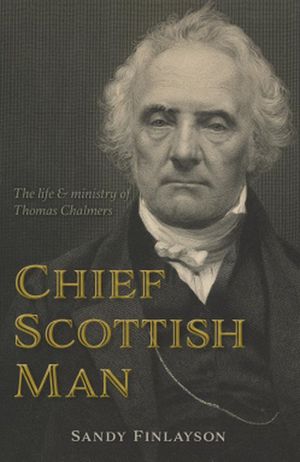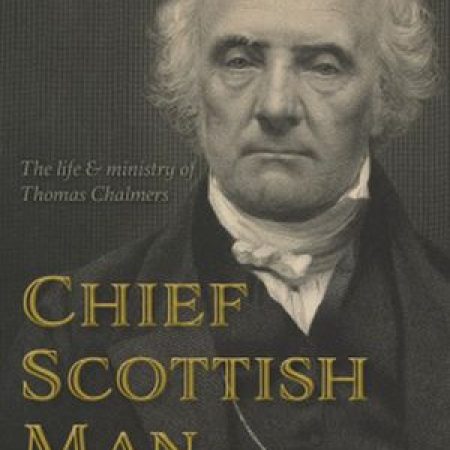
Given his importance in the history of the church in Scotland, it strikes me as surprising that so little has been written about Thomas Chalmers and that so little is known about him by Christians in his home country – never mind elsewhere in the world.
Described by one of his early biographers as ‘the chief Scottish man of his time’ (hence this biography’s title), it is remarkable that he is so largely forgotten and overlooked today.
Sandy Finlayson has written a compelling account of Chalmers’s life and ministry, from his humble beginnings on the Fife coast to his prominence as a church statesman, bringing to life a man who was mightily gifted by God.
Indeed, what struck me most as I read this book was the immense variety of ministries and activities in which Chalmers was engaged throughout his life. He is probably best remembered – where he is remembered at all – as one of the key leaders of the 1843 ‘Great Disruption’ in the Church of Scotland, and the first Moderator of the Free Church of Scotland which emerged from the Disruption. But he was also a parish minister, a brilliant and respected academic, an educationalist, and social reformer. He was also a man of great compassion for the marginalised and poor in society.
Chalmers’s conversion while serving as a parish minister in Kilmany, near St Andrews, changed him and his ministry profoundly. From someone who emphasised moralism in his preaching, he began to appeal to his people to repent and believe in the saving work of Christ. From someone who saw his ministry as a means for gaining popularity and status, he became committed to the cause of the gospel and its needed influence in the world.
It is also clear that Chalmers would not, at times, have been the easiest man to get on with, especially if you were in disagreement with him! Finlayson doesn’t shy away from addressing this aspect of his character, and wonders whether some of the conflict he experienced might have been avoided had he been as good a listener as he was a leader.
But then maybe he wouldn’t have accomplished so much for the Kingdom. ‘Cometh the hour, cometh the man.’ Church history clearly teaches us that there are those that God in his providence raises up to do specific jobs at specific times, and Chalmers was undoubtedly just such a man.
I was both greatly informed and inspired by this account of Chalmers’s life, and my only complaint was its relative brevity; but perhaps in our current age publishers are reluctant to produce anything of weight or size.
